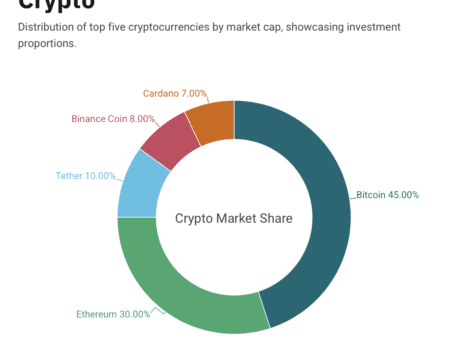Cryptocurrencies, a groundbreaking form of digital asset, are revolutionizing the world of global trade and finance. With the rise of decentralized financial systems, cryptocurrencies such as Bitcoin, Ethereum, and a host of others are reshaping the way we think about money and transactions. However, for cryptocurrencies to continue expanding globally, the regulatory environment plays a vital role. Legal clarity, favorable taxation regimes, and strong blockchain infrastructure contribute to the widespread adoption of crypto. In this article, we explore the top 10 crypto-friendly countries that are leading the way in embracing cryptocurrency, from their regulatory frameworks to their taxation policies and blockchain innovations.
What Is Cryptocurrency?
Cryptocurrency refers to digital or virtual currencies that use cryptography for security, making them difficult to counterfeit or double-spend. Unlike traditional currencies issued by governments (fiat money), cryptocurrencies operate on decentralized networks, commonly known as blockchains. Blockchains ensure transparency, immutability, and resistance to censorship by providing a distributed ledger system that is maintained across multiple computers.
The global adoption of cryptocurrencies is significantly influenced by the regulatory environment. Nations with clear and supportive regulations tend to attract companies, investors, and innovators, facilitating the growth of crypto ecosystems. On the other hand, unclear or overly restrictive regulations can stifle innovation, discourage investment, and slow down the development of the industry.
Overview of the Top 10 Crypto-Friendly Countries
Here’s a closer look at the top 10 crypto-friendly nations, examining their regulatory frameworks, taxation regimes, political climates, and blockchain infrastructures:
1. Malta: The Blockchain Island
Known as “Blockchain Island,” Malta has positioned itself as a global hub for blockchain and cryptocurrency innovation. With the passage of the Virtual Financial Assets (VFA) Act, Malta has created a comprehensive legal framework specifically designed for cryptocurrency businesses. This clarity offers legal certainty, helping businesses navigate the crypto space with confidence.
In addition to its robust regulatory structure, Malta boasts a favorable tax regime for crypto companies, including exemptions and reduced tax rates that encourage investment and entrepreneurship. The island’s commitment to developing a pro-crypto ecosystem has attracted numerous blockchain companies and startups, further cementing its reputation as a crypto-friendly nation.
2. Germany: A Leader in Crypto Regulation
Germany stands out as one of the most progressive nations when it comes to cryptocurrency. The country has recognized Bitcoin as a legitimate medium of exchange, allowing businesses and individuals to use it for various transactions. Bitcoin and other cryptocurrencies are treated as private money, providing clear tax guidance for both individuals and enterprises engaged in crypto activities.
Germany’s financial watchdog, BaFin (Federal Financial Supervisory Authority), has implemented strong regulations aimed at preventing money laundering and fraud, offering additional security to the crypto market. This regulatory approach strikes a balance between fostering innovation and ensuring a secure financial environment for users.
3. Singapore: The Hub of Crypto Innovation
Singapore has emerged as a leader in crypto adoption, thanks to its progressive regulatory approach and a favorable business environment. The city-state has established itself as a global fintech hub by creating clear and concise regulations for cryptocurrency businesses. The Payment Services Act (PSA), passed in 2020, provides a comprehensive framework for the regulation of digital payment tokens, exchanges, and wallet providers.
Taxation in Singapore is relatively friendly to cryptocurrencies, with no Goods and Services Tax (GST) on digital token transactions. Additionally, the government’s proactive stance on blockchain innovation has attracted a host of crypto startups, cementing Singapore’s position as one of the top jurisdictions for digital currency businesses.
4. Estonia: Embracing Digital Transformation
Estonia is known for its digital-first approach, making it one of the most crypto-friendly nations in Europe. Estonia introduced the e-Residency program, which allows entrepreneurs to register and operate businesses remotely, regardless of their physical location. This initiative has made Estonia a popular destination for digital nomads and crypto businesses.
Estonia’s regulatory framework for cryptocurrencies is clear and transparent, offering tax exemptions for certain crypto-related activities. The country also emphasizes blockchain technology, supporting its use in government services and private sector applications. This commitment to digital innovation has positioned Estonia as a leading force in the European crypto space.
5. Canada: A Crypto Pioneer
Canada is one of the world’s leaders in cryptocurrency development, with a strong focus on blockchain innovation. The country’s regulatory framework is supportive of cryptocurrency businesses, and its progressive approach allows for experimentation and growth in the industry. In Canada, cryptocurrencies are viewed as commodities, which means they are subject to capital gains tax rather than sales tax.
The Canadian government has made it clear that it intends to create an environment where blockchain and cryptocurrency companies can thrive while ensuring that investor protection and compliance standards are met. Canada’s well-established regulatory practices make it an attractive destination for crypto entrepreneurs and investors alike.
6. Gibraltar: A Crypto-Friendly Overseas Territory
Gibraltar, a British overseas territory located at the southern tip of the Iberian Peninsula, has taken a proactive stance on embracing blockchain and cryptocurrency. It offers a regulatory framework designed to support the growth of crypto businesses while ensuring that financial markets are protected. Gibraltar is one of the few jurisdictions that has enacted specific regulations for distributed ledger technology (DLT).
In addition to its crypto-friendly regulations, Gibraltar has one of the most attractive tax regimes for crypto companies, including 0% capital gains tax and low corporate tax rates. These favorable policies have attracted numerous blockchain-based firms to establish operations in the territory.
7. Netherlands: A Growing Crypto Ecosystem
The Netherlands has developed a strong regulatory environment for cryptocurrencies, with clear guidelines that align with European Union standards. The country requires cryptocurrency exchanges and wallet providers to comply with Anti-Money Laundering (AML) and Know Your Customer (KYC) regulations, ensuring that the crypto market remains transparent and secure.
The Dutch tax authority treats cryptocurrencies as assets, meaning they are subject to capital gains tax. While this may not be as favorable as a tax exemption, it provides clear guidelines for individuals and businesses dealing with crypto transactions. The Netherlands is also home to a thriving blockchain startup ecosystem, fostering innovation in the space.
8. United States: A Complex and Diverse Crypto Landscape
The United States offers a complex regulatory environment for cryptocurrencies, with a mix of federal and state-level regulations. While the federal government has yet to enact a comprehensive nationwide cryptocurrency policy, certain states, such as Wyoming and Texas, have adopted crypto-friendly laws that encourage innovation in blockchain and digital currencies.
At the federal level, cryptocurrencies are treated as property, which means capital gains tax applies to transactions involving digital assets. The Internal Revenue Service (IRS) has issued clear guidelines for taxpayers, and crypto exchanges are required to comply with AML and KYC regulations.
9. Portugal: A Crypto Tax Haven
Portugal has gained popularity as a crypto-friendly destination due to its favorable tax policies. The country’s tax regime exempts individuals from paying capital gains tax on cryptocurrency profits, making it an attractive option for crypto investors and traders. Additionally, there is no VAT on crypto transactions, which further boosts Portugal’s appeal as a crypto-friendly nation.
The Portuguese government has shown support for blockchain innovation, and the country’s regulatory framework provides clarity for cryptocurrency businesses. Portugal is increasingly seen as an ideal location for crypto entrepreneurs and investors looking for tax advantages.
10. Luxembourg: A Global Financial Hub for Crypto
Luxembourg is a small but powerful country with a strong reputation as a financial hub. It has embraced blockchain technology and cryptocurrency, establishing itself as a leader in the European crypto space. Luxembourg offers a favorable regulatory environment for crypto businesses and is home to a number of cryptocurrency funds and blockchain startups.
The country’s tax regime is advantageous for cryptocurrency investors, as it does not impose capital gains tax on cryptocurrency profits for individuals. Luxembourg’s regulatory framework ensures that crypto businesses operate in a safe and transparent environment, attracting both local and international investors.
Conclusion: The Future of Crypto Adoption
The adoption of cryptocurrencies is largely influenced by the regulatory environments that countries establish. The nations on this list—Malta, Germany, Singapore, Estonia, Canada, Gibraltar, the Netherlands, the United States, Portugal, and Luxembourg—have proven their commitment to supporting the growth and innovation of blockchain and crypto industries.
As the global crypto ecosystem continues to evolve, these countries are poised to remain at the forefront, providing favorable regulations, favorable tax regimes, and robust blockchain infrastructure. Crypto-friendly nations are not only attracting businesses and investors but also positioning themselves as global leaders in the ever-changing landscape of digital finance. As the world continues to embrace the future of decentralized finance, these countries are paving the way for the next wave of cryptocurrency adoption and blockchain innovation.













